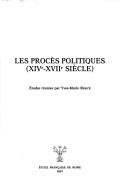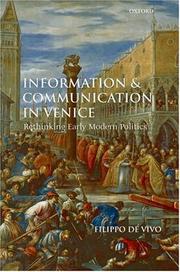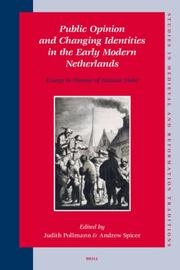| Listing 1 - 6 of 6 |
Sort by
|
Book
ISBN: 9782735506316 2735506312 Year: 2007 Volume: 25 Publisher: Paris: Éditions du Comité des travaux historiques et scientifiques,
Abstract | Keywords | Export | Availability | Bookmark
 Loading...
Loading...Choose an application
- Reference Manager
- EndNote
- RefWorks (Direct export to RefWorks)
Agriculture --- History. --- Histoire --- Beauce (France ) --- Toury (Eure-et-Loir, France) --- Histoire rurale --- --Histoire économique et sociale --- --XIIe-XVIIe s. --- Toury en Beauce --- --547 --- --XIIe-XVIIe s., --- --Histoire rurale --- --Agriculture --- Histoire économique et sociale --- XIIe-XVIIe s., 1101-1700

ISBN: 9782020376266 2020376261 Year: 2007 Publisher: Paris: Seuil,
Abstract | Keywords | Export | Availability | Bookmark
 Loading...
Loading...Choose an application
- Reference Manager
- EndNote
- RefWorks (Direct export to RefWorks)
History of France --- anno 1600-1699 --- Historiography --- Historiographie --- Du Bois, Marie, --- Criticism and interpretation --- France --- History --- Historiography. --- Histoire --- --XVIIe s., --- --BE-BxUSL --- Historiography - France --- XVIIe s., 1601-1700 --- BE-BxUSL - France - History - 17th century --- 17e siècle --- BE-BxUSL - France
Book
ISBN: 9782262023676 2262023670 Year: 2007 Publisher: Paris: Perrin,
Abstract | Keywords | Export | Availability | Bookmark
 Loading...
Loading...Choose an application
- Reference Manager
- EndNote
- RefWorks (Direct export to RefWorks)
Statesmen --- Hommes d'Etat --- Biography. --- Biographies --- Colbert, Jean Baptiste, --- France --- Politics and government --- Politique et gouvernement --- --XVIIe s., --- Colbert de Seignelay, Joannes Baptista, --- Colbert, J.-B. --- Colbert, --- Kolʹber, Zh.-B. --- Kolʹber, Zhan-Batist, --- Seignelay, Joannes Baptista Colbert de, --- Seignelay, --- History --- XVIIe s., 1601-1700 --- Colbert, Jean Baptiste, - 1619-1683 --- Colbert, Jean Baptiste (1619-1683 ) --- 1643-1715

ISBN: 9782728307722 2728307725 Year: 2007 Volume: 375 Publisher: Rome: École française de Rome,
Abstract | Keywords | Export | Availability | Bookmark
 Loading...
Loading...Choose an application
- Reference Manager
- EndNote
- RefWorks (Direct export to RefWorks)
Admettons d’appeler politique un procès qui réunit un État persécuteur, des magistrats serviles ou partisans, des culpabilités incertaines et des condamnations pour l’exemple ; ce sont là des figures éternelles de la comédie humaine. En fait, les motivations de tels procès, leurs formes, leur fréquence, leurs images dans l’opinion varient au cours des temps et des lieux, s’actualisent dans des moments d’histoire. Si l’on peut reconnaître du XIV° au XVII° siècle une étape de croissance des institutions étatiques, on se doit d’identifier ses accompagnements judiciaires, avec leurs applications spectaculaires et leurs justifications, héritées de l’antiquité ou inventées dans l’instant. Les chronologies, les procédures sont diverses à travers les souverainetés de l’Europe de ces époques, mais les types d’événements et les évolutions se ressemblent. Les grands procès demeurés célèbres, où le pouvoir et ses juges hésitent entre leur fonction politique et leur vocation d’équité, ne sont pas seulement des récit dramatiques, ils s’intègrent dans des mouvements plus longs et des genres plus communs. Le colloque tenu à Rome en 2003 s’ouvre nécessairement sur de multiples horizons historiques. Il veut offrir aux spécialistes des idées politiques, aux connaisseurs des avatars des institutions et du droit et, généralement, à tous les historiens étudiant les dynamiques des siècles médiévaux et modernes une très vaste moisson de faits. Leur lecture jettera peut être quelque clarté sur de longues tendances répétitives ou sur des originalités des institutions dans l’espace politique occidental.
Trials (Political crimes and offenses) --- Justice, Administration of --- Procès (Crimes et délits politiques) --- Justice --- History --- Congresses --- Histoire --- Congrès --- Administration --- Procès politique --- --XIVe-XVIIe s., --- Colloque --- --2003 --- --Rome --- --actes --- --Trials (Political crimes and offenses) --- Justice and politics --- Europe --- Politics and government --- Procès (Crimes et délits politiques) --- Congrès --- Political crimes and offenses --- XIVe-XVIIe s., 1301-1700 --- Trials (Political crimes and offenses) - Euorpe - History - Congresses --- Justice and politics - Congresses --- Rome --- Europe - Politics and government - Congresses --- Belges --- Belgique --- Procès politiques --- Justice et politique --- Europe de l'Ouest --- Biographies --- 1830 --- -Europe de l'Ouest --- Politique et gouvernement --- Bibliographie --- -Bibliographie --- 1500-1800 --- Moyen âge

ISBN: 9780199227068 0199227063 9780199568338 0199568332 Year: 2007 Publisher: Oxford: Oxford university press,
Abstract | Keywords | Export | Availability | Bookmark
 Loading...
Loading...Choose an application
- Reference Manager
- EndNote
- RefWorks (Direct export to RefWorks)
This is a unique investigation of the political uses of different forms of communication - oral, manuscript, and printed - in sixteenth and seventeenth century Venice, roughly the period between Machiavelli and Paolo Sarpi. De Vivo uses a rich and diverse range of sources - from council debates to leaks and spies' reports, from printed pamphlets to graffiti and rumors - to demonstrate just how closely political communication was intertwined with the wider social and economic life of the city. The book also engages with important wider problems, inviting comparison beyond Venice. For instance, today we take it for granted that communication and politics influence each other through spin-doctoring and media power. What, however, was the use of communication in an age when rulers recognized no political role for their subjects? And what access to political information did those excluded from government have? In answering these questions, de Vivo offers a highly original reinterpretation of early modern politics that steers a course between the tendency of the political historian to view events from the windows of government buildings and the 'history from below' of social historians. As this account shows, neither perspective is sufficient in isolation, because even the most secretive oligarchs, ensconced in the Ducal Palace's most restricted councils, were constantly preoccupied by their vociferous subjects in the squares below. Challenging the social and cultural boundaries of more traditional accounts, the book goes on to show how politics in early modern Venice extended far beyond the patrician elite to involve the entire population, from humble clerks and foreign spies, to notaries, artisans, barbers, and prostitutes. As both a city and the capital of a large state, Venice offers a rich terrain for this inquiry.
316.773.3:02 --- 945.34 VENEZIA --- 945.34 VENEZIA Geschiedenis van Italië: Veneto Venezia Venezia Tridentina--(reg./lok.) --- Geschiedenis van Italië: Veneto Venezia Venezia Tridentina--(reg./lok.) --- 316.773.3:02 Boek: communicatieinhoud--(communicatiesociologie) --- Boek: communicatieinhoud--(communicatiesociologie) --- Communication in politics --- Communication --- Communication, Primitive --- Mass communication --- Sociology --- Political communication --- Political science --- 945.34 VENEZIA Geschiedenis van Italië: Veneto; Venezia; Venezia Tridentina--(reg./lok.) --- Geschiedenis van Italië: Veneto; Venezia; Venezia Tridentina--(reg./lok.) --- History --- Political aspects&delete& --- Venice (Italy) --- Politics and government --- History of Italy --- anno 1600-1699 --- anno 1500-1599 --- Venice --- History. --- Political aspects --- Politique --- Politique et gouvernement --- XVIe-XVIIe s., 1501-1700 --- Venise

ISBN: 9789004155275 9004155279 9786611458041 128145804X 9047411609 9789047411604 9781281458049 6611458042 Year: 2007 Volume: 121 Publisher: Leiden ; Boston : Brill,
Abstract | Keywords | Export | Availability | Bookmark
 Loading...
Loading...Choose an application
- Reference Manager
- EndNote
- RefWorks (Direct export to RefWorks)
Was there such a thing as 'public opinion' before the age of newspapers and party politics? The essays in this collection show that in the Low Countries, at least, there certainly was. In this highly urbanised society, with high literacy rates and good connections, news and public debate could spread fast in the sixteenth and seventeenth centuries, enabling the growth of powerful opposition movements against the Crown, the creation of the Dutch Republic, and of the distinctive Netherlandish culture of the Golden Age. Contributors include: Hugh Dunthorne, Raingard Esser, Jonathan Israel, Gustaaf Janssens, Henk van Nierop, Guido Marnef, M.E.H. Nicolette Mout, Andrew Pettegree, Judith Pollmann, Paul Regan*, Andrew Sawyer*, Jo Spaans, Andrew Spicer*, and Juliaan Woltjer. (* Supervised by Alastair Duke)
History of civilization --- History of the Low Countries --- anno 1500-1799 --- Public opinion --- Dissenters --- Dissenters, Religious --- Opinion publique --- Dissidents --- Dissidents (Religion) --- History --- Histoire --- Netherlands --- Pays-Bas --- --XVIe-XVIIe s., --- --Identité religieuse --- --History --- 949.2.03 --- 949.2.03 Geschiedenis van Nederland:--(1566-1649) --- Geschiedenis van Nederland:--(1566-1649) --- Festschrift - Libri Amicorum --- Nonconformists --- Rebels (Social psychology) --- Conformity --- Believers' church --- Conformity (Religion) --- Nonconformists, Religious --- Nonconformity (Religion) --- Protestant dissenters --- Separatism (Religion) --- Congregationalism --- Established churches --- Free churches --- Liberty of conscience --- Sects --- Opinion, Public --- Perception, Public --- Popular opinion --- Public perception --- Public perceptions --- Judgment --- Social psychology --- Attitude (Psychology) --- Focus groups --- Reputation --- The Netherlands --- Países Baixos --- Holland --- Spanish Netherlands --- Pays-Bas espagnols --- Austrian Netherlands --- Pays-Bas autrichiens --- Oostenrijkse Nederlanden --- Southern Netherlands --- Pays-Bas méridionaux --- Zuidelijke Nederlanden --- Niderlandy --- Belanda --- Nederland --- Koninkrijk der Nederlanden --- Reino dos Países Baixos --- Royaume des Pays-Bas --- Kingdom of the Netherlands --- Países Bajos --- Holanda --- Nederlân --- Hulanda --- Beulanda --- Niderland --- Niderlande --- هولندا --- مملكة هولندا --- Mamlakat Hūlandā --- Olanda --- Payis-Bâs --- Países Baxos --- Aynacha Jach'a Markanaka --- Nirlan --- Niderland Krallığı --- Kē-tē-kok --- Landa --- Kerajaan Landa --- Нидерландтар --- Niderlandtar --- Нидерландтар Короллеге --- Niderlandtar Korollege --- Нідэрланды --- Каралеўства Нідэрланды --- Karaleŭstva Nidėrlandy --- Nederlands --- Niadaland --- Holandija --- Kraljevina Holandija --- Izelvroioù --- Нидерландия --- Niderlandii︠a︡ --- Кралство Нидерландия --- Kralstvo Niderlandii︠a︡ --- Països Baixos --- Нидерландсем --- Niderlandsem --- Нидерландсен Патшалăхĕ --- Niderlandsen Patshalăkhĕ --- Nizozemsko --- Paesi Bassi --- Regnu di i Paesi Bassi --- Iseldiroedd --- Nederlandene --- Niederlande --- Kéyah Wóyahgo Siʼánígíí --- Nižozemska --- Kralojstwo Nederlandow --- Madalmaad --- Ολλανδία --- Ollandia --- Hollandia --- Κάτω Χώρες --- Katō Chōres --- Βασίλειο των Κάτω Χωρών --- Vasileio tōn Katō Chōrōn --- Nederlando --- Reĝlando Nederlando --- Paisis Bajus --- Herbehereak --- Herbehereetako Erresumaren --- هلند --- Huland --- Niðurlond --- Háland --- Paîs Bas --- Neerlande --- Ísiltír --- Ríocht na hÍsiltíre --- Çheer Injil --- Çheer y Vagheragh --- Reeriaght ny Çheer Injil --- Tìrean Ìsle --- Hò-làn --- Недерлендин Нутг --- Nederlendin Nutg --- 네덜란드 --- Nedŏllandŭ --- Hōlani --- Nederlandia --- Pais Basse --- Regno del Paises Basse --- Нидерландтæ --- Niderlandtæ --- Нидерландты Къаролад --- Niderlandty Kʺarolad --- Konungsríkið Holland --- הולנד --- Holand --- ממלכת ארצות השפלה --- Mamlekhet Artsot ha-Shefelah --- Walanda --- Hollandi --- Нидерландла --- Niderlandla --- Нидерландланы Королевствосу --- Niderlandlany Korolevstvosu --- Néderlandzkô --- Нидерланд --- Iseldiryow --- Ubuholandi --- Ubuhorandi --- Nederilande --- Нидерланддар --- Niderlanddar --- Uholanzi --- Ufalme wa Nchi za Chini --- Нидерландъяс --- Niderlandʺi︠a︡s --- Нидерландъяс Корольув --- Niderlandʺi︠a︡s Korolʹuv --- Peyiba --- Holenda --- Keyatiya Nederlandan --- Payises Bashos --- פאייסיס באשוס --- Nīderlandeja --- Batavia --- Regni Nederlandiarum --- Nīderlandes Karaliste --- Nyderlandai --- Nyderlandų Karalystė --- Paixi Basci --- Paes Bass --- Ulanda --- Holland Királyság --- Keninkryk fan 'e Nederlannen --- Reino di Hulanda --- Холандија --- Кралство Холандија --- Kralstvo Holandija --- Pajjiżi l-Baxxi --- Hōrana --- Недерлатт --- Nederlatt --- Оцязорксши Недерлатт --- Ot︠s︡i︠a︡zorksshi Nederlatt --- Нидерландын Вант Улс --- Niderlandyn Vant Uls --- Tlanitlālpan --- Huēyitlahtohcāyōtl in Tlanitlālpan --- Eben Eyong --- Nederlaand --- オランダ --- Oranda --- オランダ王国 --- Oranda Ōkoku --- Ulanna --- Nethiland --- Nederlande --- Holandska --- Holland (Kingdom) --- Batavian Republic --- United Provinces of the Netherlands --- Public opinion - Netherlands - History - 16th century --- Public opinion - Netherlands - History - 17th century --- Dissenters - Netherlands - History - 16th century --- Dissenters - Netherlands - History - 17th century --- Dissenters, Religious - Netherlands - History - 16th century --- Dissenters, Religious - Netherlands - History - 17th century --- XVIe-XVIIe s., 1501-1700 --- Identité religieuse --- 16e siècle --- 17e siècle
| Listing 1 - 6 of 6 |
Sort by
|

 Search
Search Feedback
Feedback About UniCat
About UniCat  Help
Help News
News